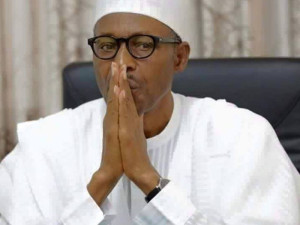
From this, though, flows a bigger worry: that we may well lose the fight against corruption through feckless management of the processes required to secure conviction and make restitution. Still, this will be a small bear compared to the toll that an effete public administration will exert on our limited national resources.
Up against a flagging economy, and regularly alarmed by the clumsy responses of government across the three tiers, a certain cohort of Nigerians has despaired of the Buhari administration. Yet, you need only to look at the circumstances differently to conclude that the administration is not a completely lost cause. Although, one must step back from the noise (and I do admit that it is often deafening) generated by the debate on the utility of the administration, to understand the many ways in which it has benefited the polity.
Before May 29, 2015, theft looked like a major national problem. Anecdotal evidence suggested that just about every public officer had his/her snout in the public till — indeed, main street had no doubt that (what a campaigning politician here in the late 1970s called) “squandermania and kleptomania” had become the raison d’être of most Nigerians seeking appointments to public office. The narrative went further, especially after new data tagged our economy as the biggest on the continent, to argue that the incidence of poverty was relatively high here because the gains from growth were being appropriated by a shrinking coterie of our compatriots. And in the decade to 2014, output growth did average seven percent plus annually. Although official numbers are hard to come by, it is a fair bet that income inequality worsened over the decade.
For good reason, a counter-narrative arose in response to this argument. Once we discourage the thieving and barefaced incentives to rentier behaviour, we would see a re-allocation of national resources towards where these are best utilised. In addition, a reduction in the relative and absolute levels of poverty should follow. This was then the alternative to the Jonathan government at the last general ballot. And in a faux-caudillo, we advertised one who had the cojones to take on vested interest with unusual perpendicularity.
Whereas much of the noise generated by the Buhari administration since coming to office has been around this epic fight to take the corrupt down, it would seem that because of this the issues of rapid growth and equitable sharing of the gains therefrom appear to have taken the back seat. Two questions arise from this possibility.
First one. Is this then the error of the Buhari administration — to have thought the fight against corruption was the goal in itself, rather than conceive this fight as an instrument for boosting the economy’s total factor productivity? Second question. Is this error the administration’s Achilles heel?
These are far from hypothetical questions in the case of the Buhari administration. For despite its commitment to cleansing our Augean stables, it appears to have placed considerable weight on fealty to the regime as the main criterion when searching for lieutenants to help it with running the affairs of state.
While it is very easy to deliver an unequivocal “Yes” to the first of these posers, the second question is too nuanced to respond to without further interrogation. For the administration’s inner workings draws attention to a significant national flaw. As ubiquitous in the private sector as it is in the public sector, a national penchant is for the recruitment and promotion of persons who pledge their fealty to the boss. Not much consideration for merit and integrity really — it is all about loyalty to the “oga at the top”.
Now the danger is that the “oga at the top’s” panoply of objectives are inconsistent with that of the organisation s/he heads.
The problem this creates is illustrated by a query that a very good friend was wont to put forward several years ago. “If you recruit a third-class intellect to head a university faculty, what would be the calibre of persons s/he would recruit into subordinate positions?” my friend would ask. “Would the latter significantly differ from those a first-rate intellect would recruit? And how would both visions impact the university as a learning and research centre?”
These are far from hypothetical questions in the case of the Buhari administration. For despite its commitment to cleansing our Augean stables, it appears to have placed considerable weight on fealty to the regime as the main criterion when searching for lieutenants to help it with running the affairs of state. Individuals, it is reported, have cabinet posts only because of how helpful they were in the run-up to the last general elections. Arguably the strongest lesson from the first lady’s recent unusual intervention in domestic politics was the ease with which she broke the connection between competence and appointment to high office.
And therein lies the current government’s most important contribution to our “nascent” democracy. If our national goal is to improve the economy’s working, then the design of domestic monetary, fiscal and structural reforms that improve the economy’s allocative efficiency is the end. This may be helped by an operating environment that is less corrupt than we currently have. But it cannot succeed without putting competent persons in charge of policy making.
From this, though, flows a bigger worry: that we may well lose the fight against corruption through feckless management of the processes required to secure conviction and make restitution. Still, this will be a small bear compared to the toll that an effete public administration will exert on our limited national resources.
Ifeanyi Uddin, journalist manqué and retired civil servant, can be reached @IfeanyiUddin.
PremiumTimes
END

Be the first to comment